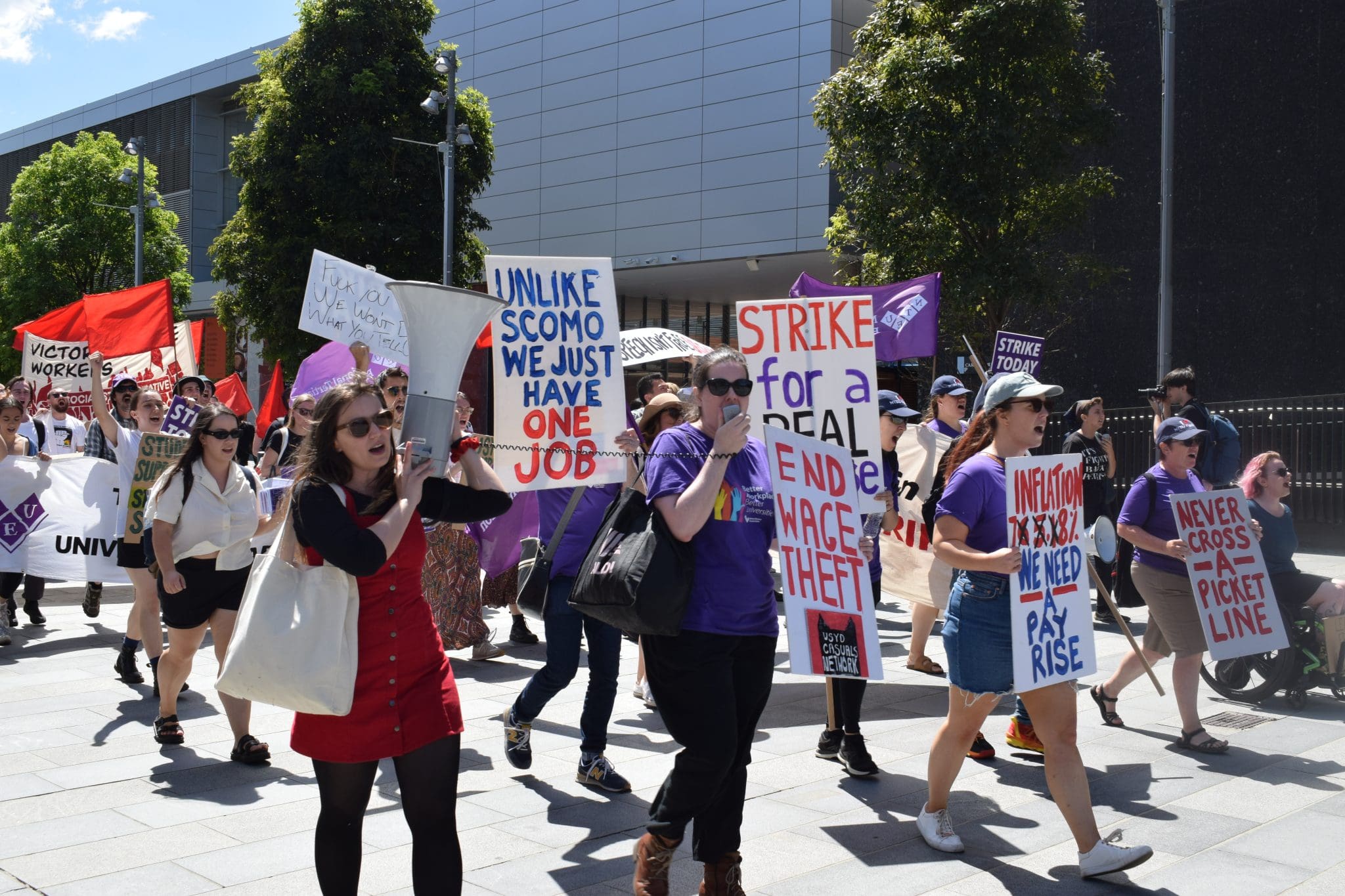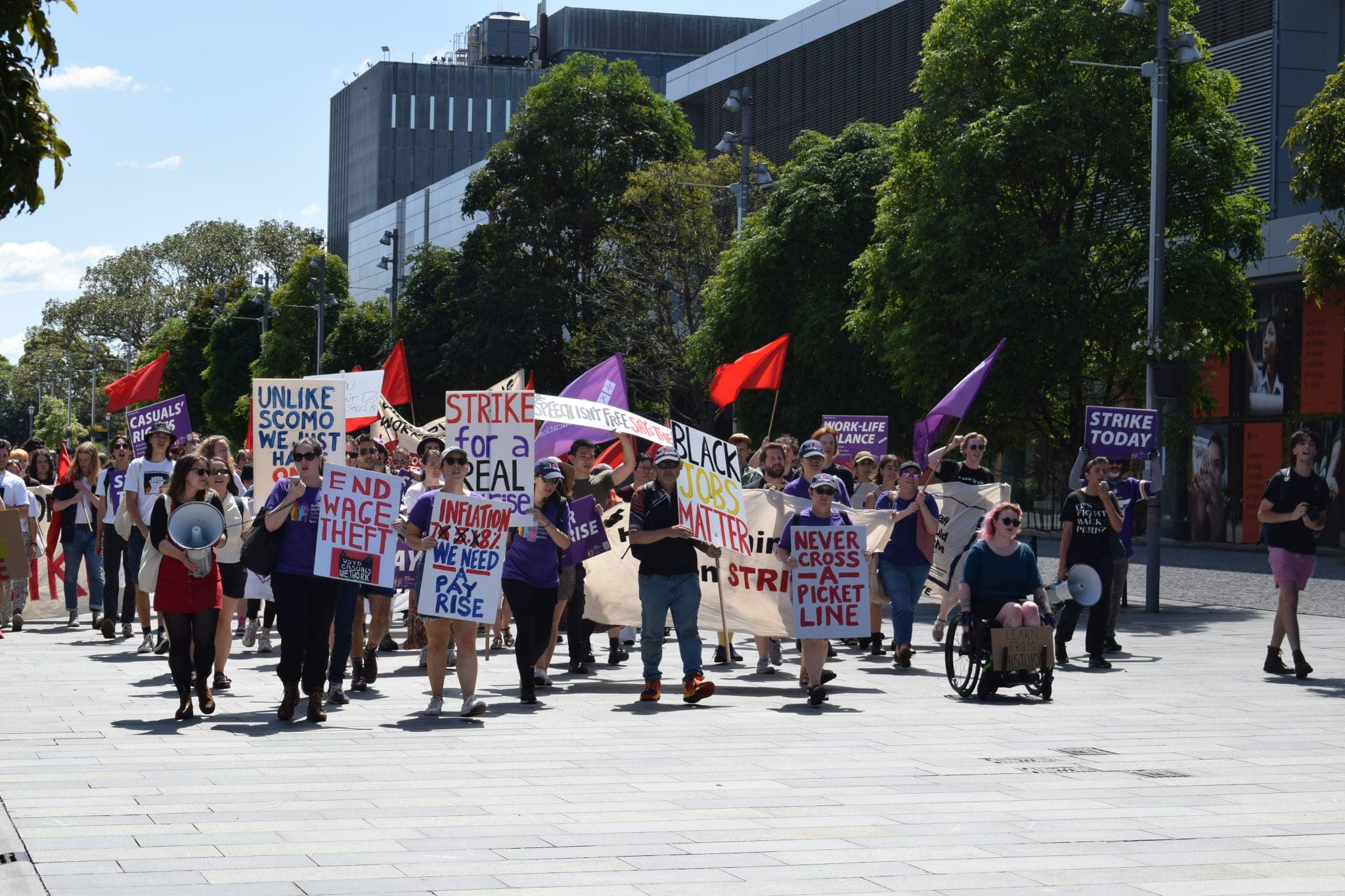University of Sydney staff and students went on strike today, following the University’s failure to offer staff sufficient improvements to their pay and working conditions.
The strike was held 20 months into ongoing Enterprise Bargaining negotiations between the National Tertiary Education Union (NTEU) and the University. This is the longest period of enterprise bargaining in the University’s history.
The strike was the seventh to have occurred in this period, the most days of strike action ever taken by the NTEU in a single campaign.
Pickets began forming just before 7am at entrances throughout the University. Academics, professional staff, and students picketed at Parramatta Road, Eastern Avenue, Victoria Park, Redfern Run, the Business School, and other locations at the Camperdown/Darlington campus.
The strike was marked by an increased police presence. Undercover police patrolled campus, breaking the Parramatta Road picket by revealing their guns to picketers.
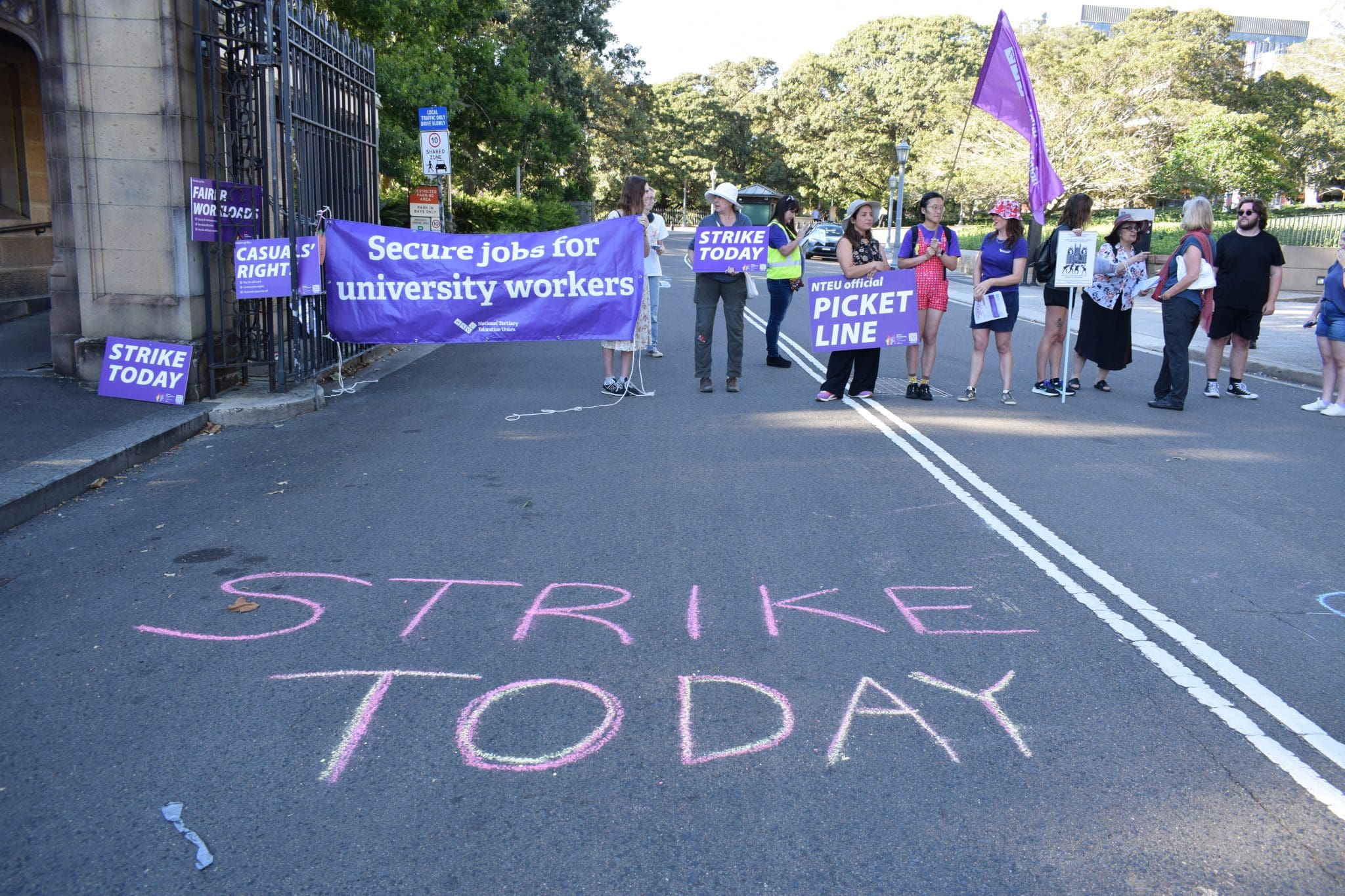
Despite this hostility, the pickets were lively, with chanting, live music, speeches, babies and pets all featuring throughout the day. When people attempted to cross the picket, picketers explained the conditions leading to the strikes, and were able to turn back the majority of pedestrians and cars attempting to enter the campus.
Eastern Avenue and the campus at-large were empty during the strike and were noticeably quieter even after picketers dispersed. This contrasts with the insistence of University Provost Annamarie Jagose, as communicated to staff and students, that “campus remain[ed] open” during the strike.
Many classes were moved online by the University, in an attempt to subvert the strike and the Union’s demands. Jagose sent an all-staff email on Monday, saying that “the University recommends … that staff who can perform their duties remotely — including academic staff who can switch their classes to online delivery — do so.”
Student activists compiled lists of online classes, and attempted to join online classes. Their objective was to inform students and teaching staff of the reasons for the strike and the NTEU’s demands, yet several of these “Zoom bombers” were forcibly removed from the online classes.
“It’s funny that the university refuses to make accommodations for people with disabilities around online learning, but as soon as a strike is called they’re happy to use Zoom,” SRC Disabilities Officer Jack Scanlan said on the Eastern Avenue pickets.
Jagose’s March 6 email, as a reflection of management’s approach to enterprise bargaining, was a source of discontent for staff in the lead up to today’s strike. Jagose insisted that online strikebreaking was necessary to “minimise student and staff disruption”, and insisted that “strike action will not change the University’s position.”
Despite claiming to bargain “in good faith,” neither Vice Chancellor Mark Scott nor Provost Jagose have been present at bargaining meetings between the parties preceding the strike. The University is instead represented in negotiations by Stuart Pill, a corporate lawyer normally based in Melbourne.
The University recorded a $1.05 billion surplus in 2021. This represents a historic high in the university sector; it is the University’s largest ever surplus and significantly larger than any other Australian university in 2021, the most recent year for which this information is publicly available.
In light of this surplus, staff reiterated their key demands in speeches throughout the day:
Pay
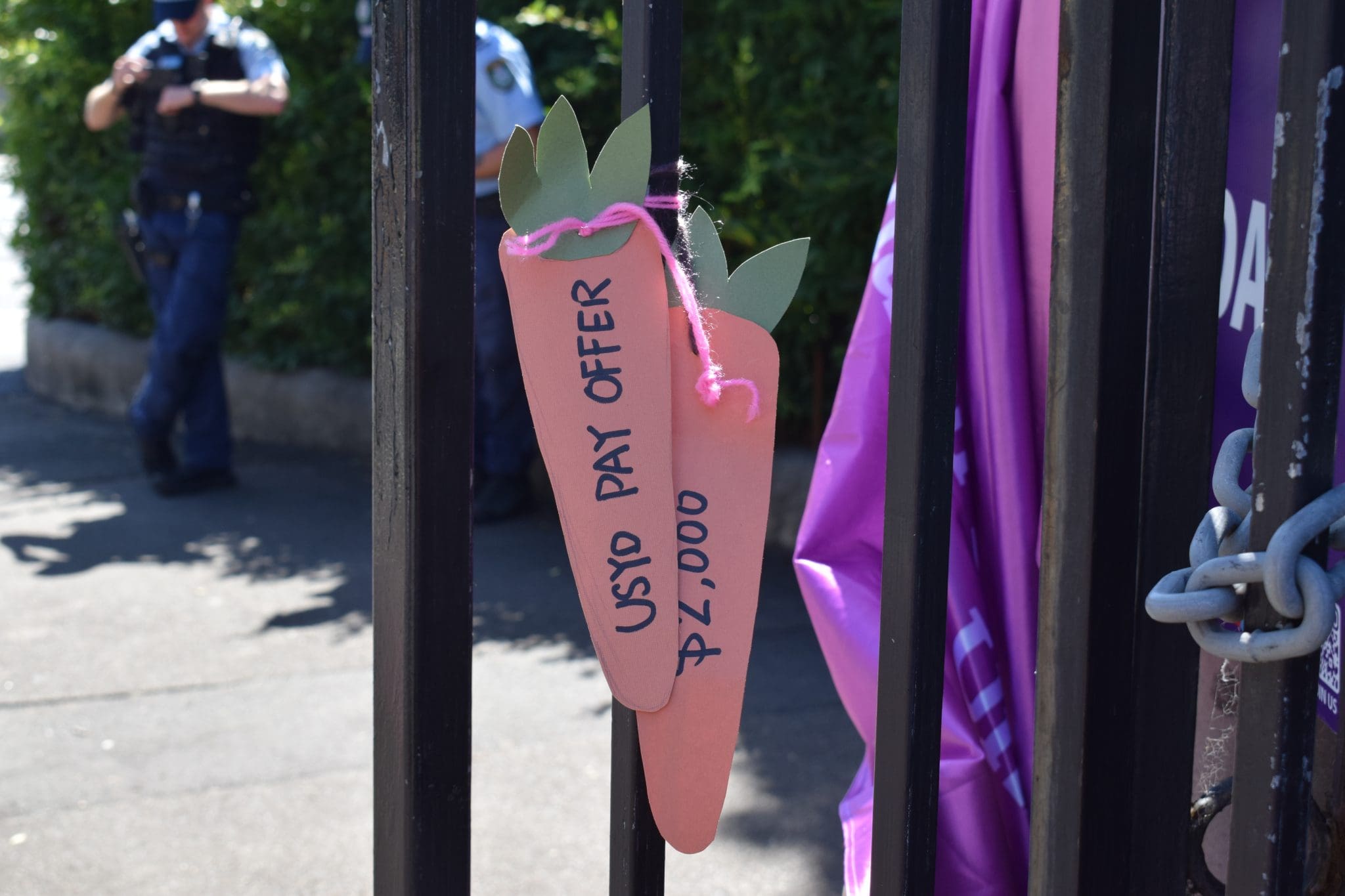
A fair pay rise, above inflation, was a key motivation for many striking staff.
Emily, an academic within the Philosophy Department and NTEU member, said that “the idea that you’d have that level of productivity increase from staff [to generate a $1 billion surplus], with increased workload, without a fair pay rise, makes you wonder what is next?”
Picketers were asked by an NTEU member at Eastern Avenue picket, “what have [management] done to try and sweeten this atrocious deal that they’re putting forward that actually takes our conditions backwards? A very cynical move of a carrot — a $2000 sign on bonus if you suck up more work intensification, worsening of conditions we’ll give you $2000. And they know how much people need that money […] in the climate that we’re in.”
Casual Work
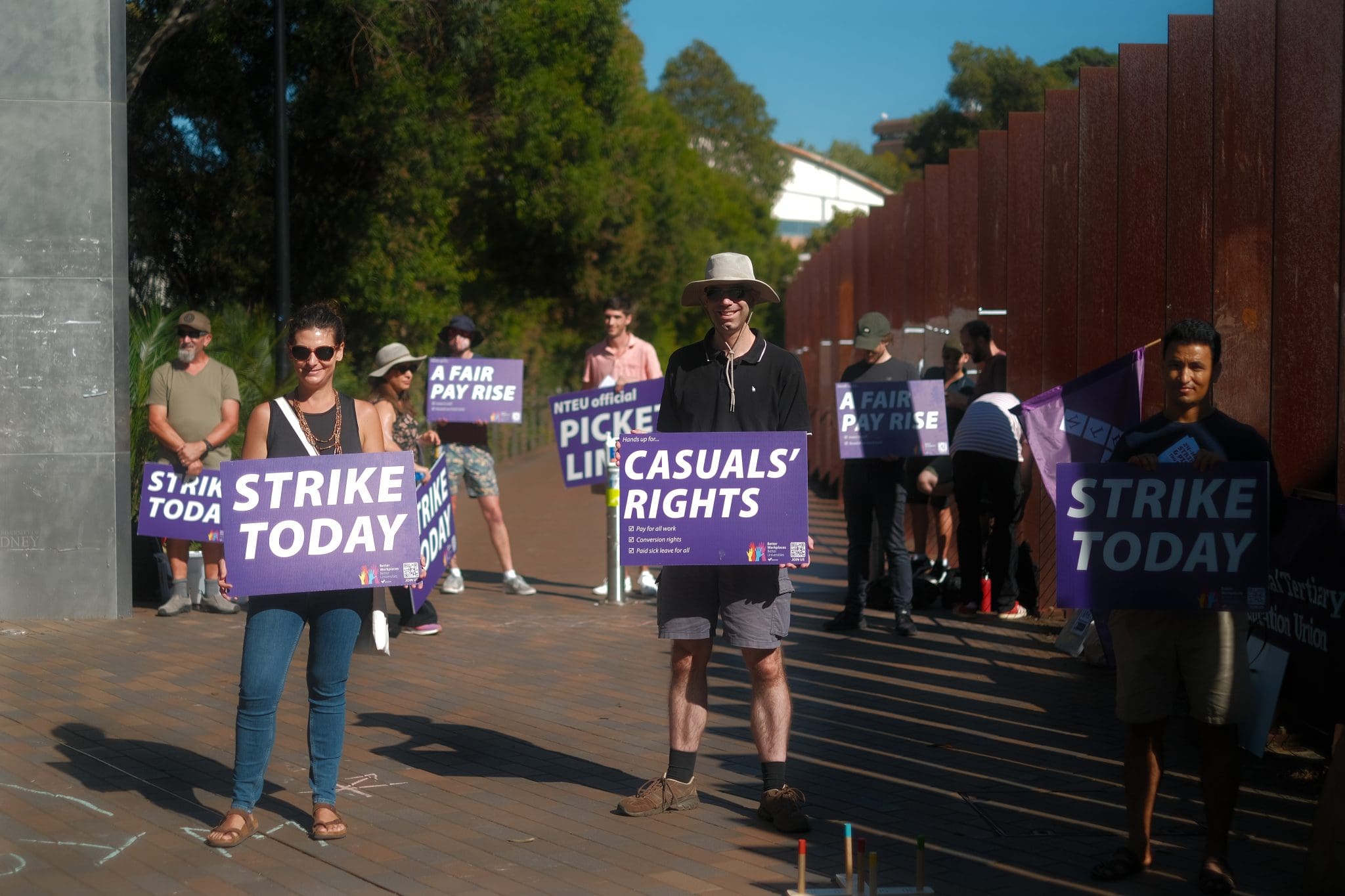
The poor treatment of casuals at the University, and across the higher education sector, was a key reason for today’s strike. Casuals are still subject to insecure work, aren’t offered sick pay, and have had their wages stolen by the University for years.
Julie, a casual academic with the Education Department said at Parramatta Road, “working conditions for casuals are really poor.”
“I’m tired of not being able to mark assignments effectively, I’m tired of not being able to speak to students about their marks, I’m tired of attending meetings without being paid,” they said.
“I love teaching but it leaves a very sour taste when I am not valued; educators across the board are not valued for what they do.”
USyd NTEU Branch Committee member Sophie Cotton told Eastern Avenue picketers “management know that they are putting casual staff at risk,” by refusing to offer casual staff sick pay.
40:40:20 — Teaching Loads
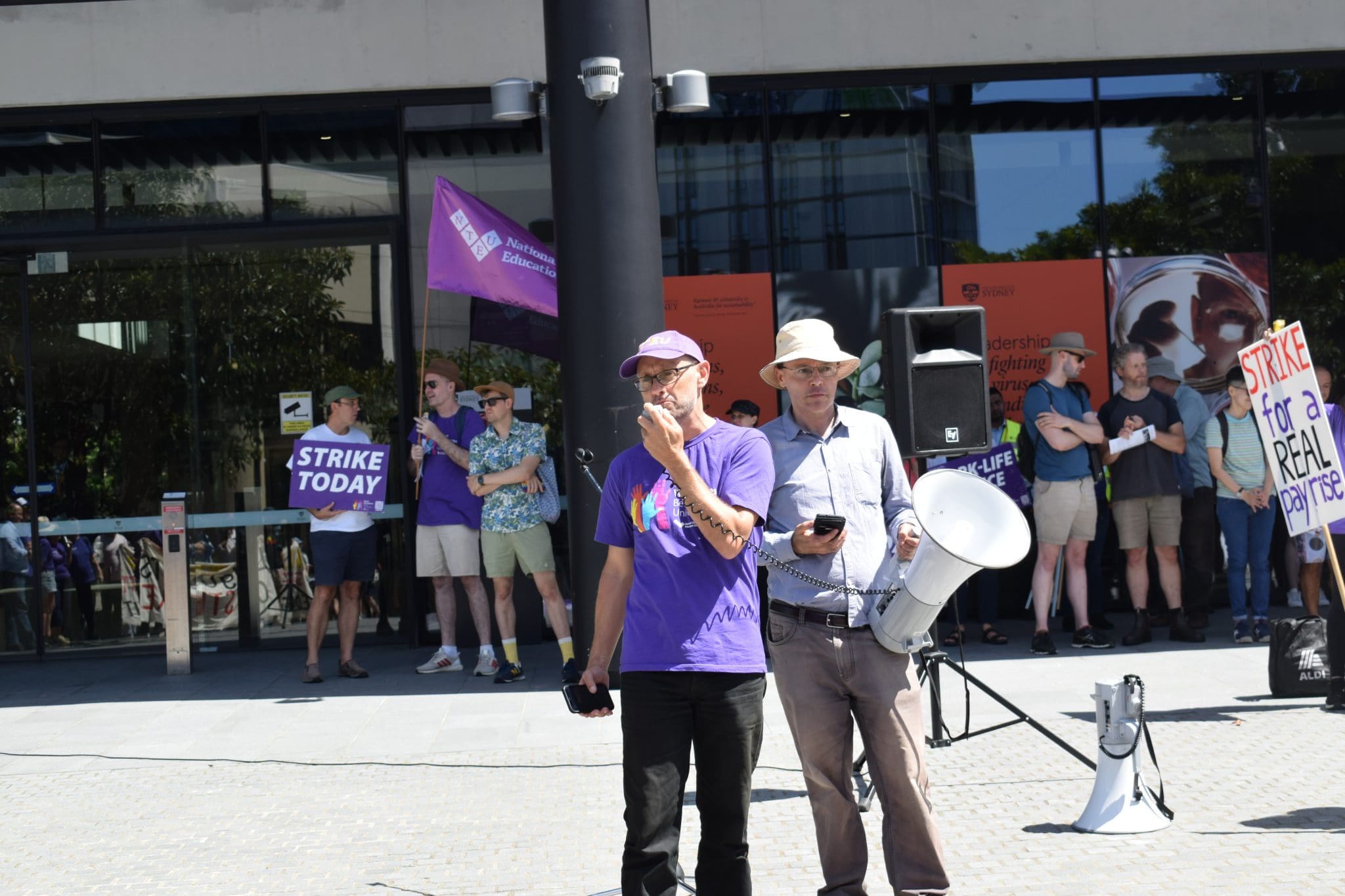
Academic staff have historically been guaranteed a 40:40:20 division between teaching, research and administrative work respectively, which ensures staff can pursue important research and aren’t overworked. This model is under threat at USyd and its protection was frequently cited as a reason for the strike.
“Vice Chancellors are trying to split research and teaching … USyd should be a bulwark against that” said NTEU member Jean at the Eastern Avenue picket.”
Professor Elizabeth Hill said that they “really want to take action to protect the conditions which make for good academic life.”
Hill condemned the “stratification of the labour market” caused by changing workloads for academic staff.
Indigenous Parity
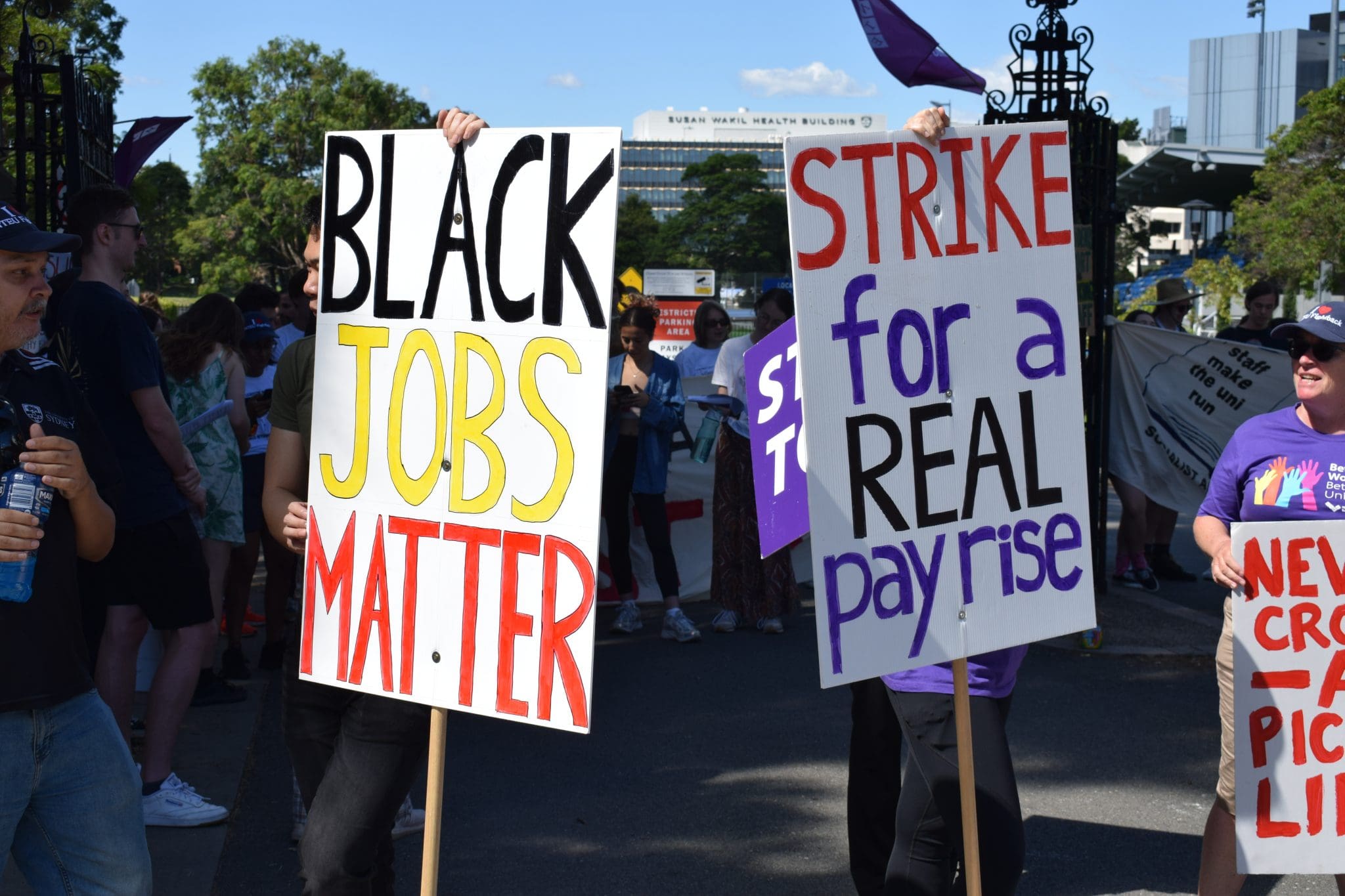
First Nations workers at the University make up only 1% of the workforce at the University of Sydney. The NTEU demanded at today’s strike that the University commit to a target of employing Indigenous staff to make up the same percentage of the University workforce as they do the population.
“Initially, in bargaining, it looked as if the university was actually willing to consider that but recently they’ve told us that they find that too ambitious and they’re not willing to go there, so that’s quite disappointing,” David Brophy, USyd NTEU Vice President (Academic Staff) told Honi.
Louise Boon-Kuo, a Law Faculty academic, told the Parramatta Road picket that population parity for Indigenous staff was “the least we can do.”
***
Bargaining between the parties continues this week. If the Union’s demands are not met by the University, further strikes are set to occur in Week 6 and Week 10.
USyd NTEU Branch President Nick Reimer said that if needed, “We [will] come back twice as strong, twice as loud, twice as determined, with twice as powerful strikes, and other forms of disruption.
“We have a deeply hostile militant management who are determined to railroad us into submission. Not on our watch. That’s what I say: not on our watch.”
